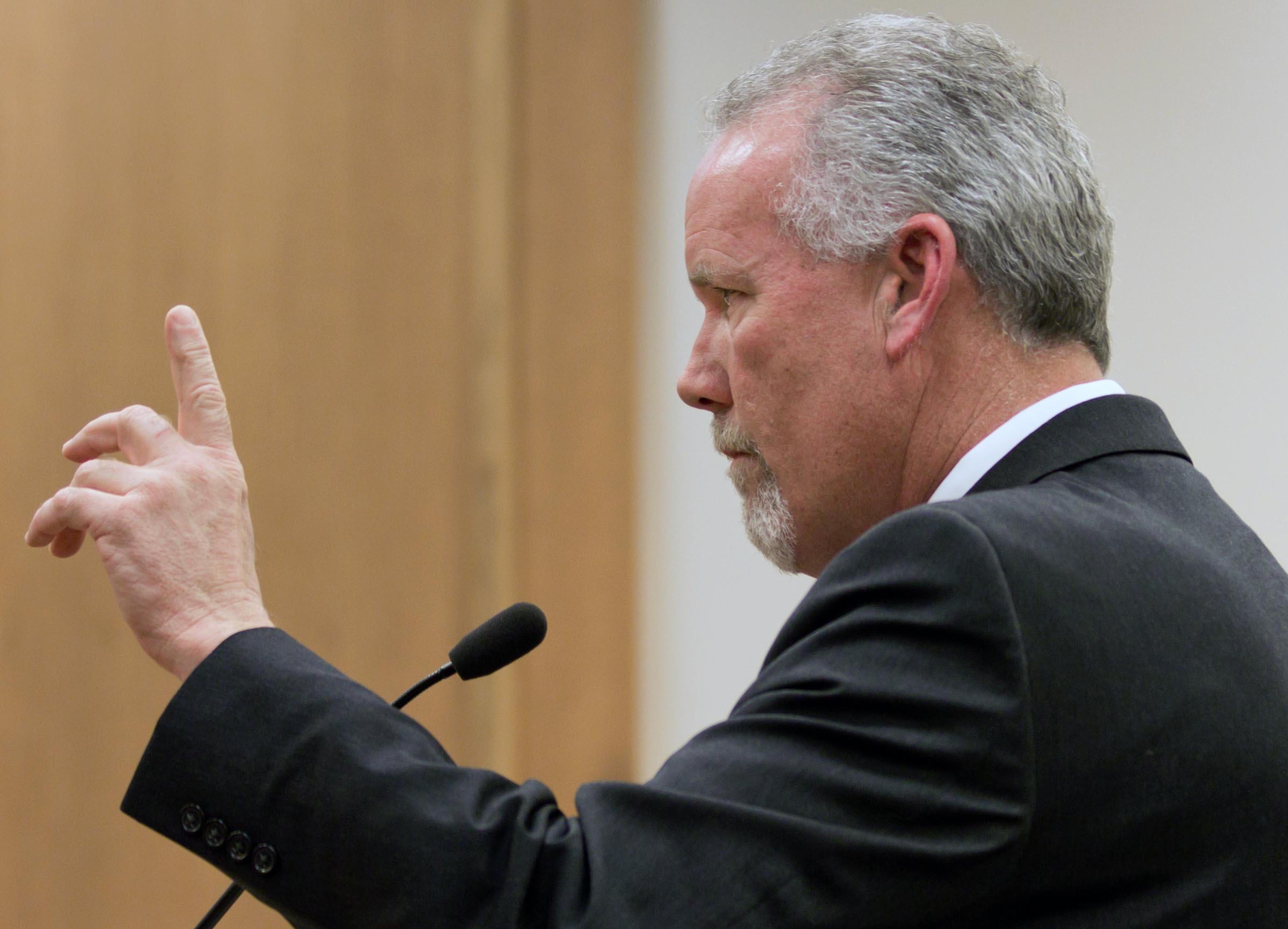State Rep. Joe Carr squares off over states' rights, gun bill
Friday, January 1, 1904
NASHVILLE - If Republican state Rep. Joe Carr wanted national publicity for his bill calling for the jailing of federal agents attempting to enforce would-be restrictions on semi-automatic weapons, the Lacassas, Tenn., lawmaker was in the right place Friday.
Carr and MSNBC's the Rev. Al Sharpton squared off in a nearly nine-minute-long verbal slugfest on Sharpton's cable show.
The topics? Carr's bill, Second Amendment gun rights, state sovereignty, hand grenades, nuclear bombs tucked under a bed, slavery and the civil rights struggle.
For Carr, who is weighing a 2014 congressional bid, it provided a forum that could prove popular to largely rural and conservative 4th Congressional District voters.
Sharpton kicked off the segment saying Republicans in at least six states, including Tennessee, "are resorting to an old argument to fight a new battle, crying states' rights as they attack President Obama on gun control."
"Now let me ask you," he said to Carr, "do you really think your state bill will trump federal law?"
Carr said part of his point is "trying to illustrate here that the federal government systematically over the years has been on a full assault of the Second Amendment."
"And when you assault the Second Amendment," he told the liberal host, "you just don't assault the Second Amendment, you assault the entire Bill of Rights, and that's the line we're trying to draw here -- for years the Bill of Rights has been under attack by the federal government."
Sharpton said Obama is not talking about traditional firearms but "magazines that shoot a hundred rounds, he's talking about assault weapons. The Second Amendment doesn't give you that right."
Quoting the Second Amendment, Carr said, "The right of the people to bear arms shall not be infringed, Rev. Sharpton."
That prompted a debate with Carr saying the Second Amendment came in response to the "tyranny" of King George III, while Sharpton questioned what weapons would be covered under Carr's interpretation.
"Why can't I have a hand grenade; why can't I have rockets?" Sharpton asked. "I mean, if you're going to say arms, then anyone can define what that means, then why can't I have whatever I want -- a nuclear weapon under my bed?"
They also sparred over the U.S. Constitution with Sharpton alluding to the Supremacy Clause, which says the Constitution and federal laws are "the supreme law of the land," and Carr citing the 10th Amendment, which reserves to states powers not delegated to the federal government by the Constitution.
Off-camera, the debate is in full swing back home and elsewhere, with critics calling Carr's bill unconstitutional while the head of the Tennessee Firearms Association, John Harris, is telling members to write their local sheriffs.
Harris said in an email they should urge sheriffs "not to enforce or allow the enforcement of laws within their jurisdiction that are in violation of the constitutional and civil rights of the citizens." Calling state lawmakers would be helpful, too, he noted.
While Carr's proposal making it a misdemeanor for federal agents to enforce any would-be ban on sales of semi-automatic weapons may sound comforting to some gun owners, state Senate Minority Leader Jim Kyle, D-Memphis, said it's unconstitutional.
"If it was constitutional to do that, then Mississippi, Alabama and Arkansas would have passed legislation to prohibit federal troops from enforcing desegregation" in the 1950s and 1960s, said Kyle, an attorney.
Carr has charged Obama's proposals to ban semi-automatic rifles and high-capacity gun ammunition clips represent a "systematic effort to disarm the law-abiding citizens of the United States."
It won't stop repeats of the December massacre at Connecticut's Sandy Hook Elementary School that left 20 first-graders and six teachers and school personnel dead, Carr said. What's needed, he argued, are armed school guards.
Last week, Jeffrey Fisher, a Stanford University law professor and former Supreme Court law clerk, told The Huffington Post a similar proposal from Wyoming legislators is questionable under the Constitution.
"It is elementary that a state cannot pass a statute that blocks enforcement of an otherwise enforceable federal law," Fisher told the news website.
Daniel Feller is a University of Tennessee historian who directs the university's the Papers of Andrew Jackson project.
He recalled the Tennessee president's fight 180 years ago over tariffs on imported goods. Like most Southerners, Jackson was no fan of tariffs. But he was angered by South Carolina's claim that states could "nullify" federal laws they disliked. South Carolina declared the tariffs "null and void," the theory being it would bar federal officials from collecting them.
Feller said Jackson appealed to South Carolinians, telling them, "You're not just South Carolinians; you're Americans," and calling it wrong to consider national legislation merely from a state or local interest.
Feller said that as a historian, he generally prefers not to put himself in the position of political commentator but rather "as a nonpolitical dispenser of political truth."
Still, he noted, "there are all sorts of ways that a bill like Rep. Carr is proposing could actually pass -- whether it should pass is an entirely other matter -- and not lead to any confrontation."
That would require an attempt to enforce it that would result in a court case and "someone would have to rule on that. Both sides would really have to want to pursue it.
"Now if they did pursue it," Feller said, "I think there's absolutely no doubt that this law loses and the federal government wins."

